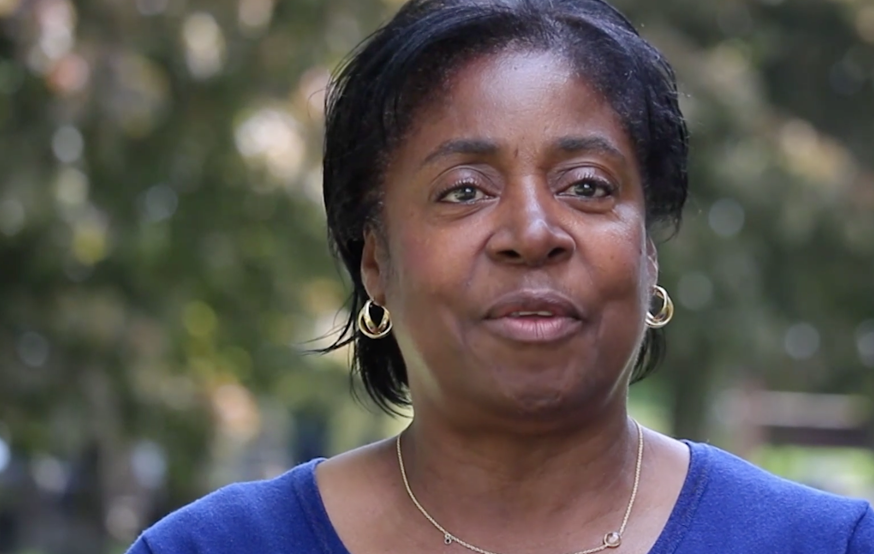"That was a good lesson, Miss" - Education, by Catherine Ross at Museumand
The first day I walked into my classroom as a Further Education Lecturer of Business Studies, I had to pinch myself. Racism was still rife in society in the late 70s and many memories of my school days and growing up in the 50s were still raw. I remember the outrage of my parents at the Government report that said Black children were educationally subnormal, and all because they spoke “patois”, apparently! 60 years later patois is spoken not just by the Windrush Generation but by Caribbeans born in the UK. It has been adopted by the friends of Black British people and others in society even if it’s only a few words and phrases. Caribbean patois is a vernacular now in common parlance and forms part of recognised, Street Talk. It is even heard on the BBC.

I recalled my parents anger when I reported in the late 60s that my Careers Officer advice was that as my school reports were good when I got my GCEs which he was absolutely sure I would, I would get a job in Woolworths! I still feel the blush of embarrassment that I felt that his advice was good. Well at least I reasoned I won’t be joining the ranks of other black children who were told their destination was in the local factories working at speed for long hours to earn their wage. I hated the thought of all that work! Woolworths by comparison would be a dream, everything a teenage girl could desire – the makeup counter, the sweets section and the vinyl records. Working there would be heaven! I was brought back down to earth though when I saw the look of horror in my parents’ eyes and heard the words, “No child of mine…”
So, the day I walked into the 6-storey building of the local college, briefcase in hand, looking sharp in my nice tailored suit, a Further Education Lecturer, I knew my parents were proud of me. I hoped they knew how proud I was of them that they had stood up against the authorities and refused to let me complete the Woolworth’s application form. Instead they had sat with me and helped me apply for Higher Education. Together we had resisted an injustice meted out by the education service up and down the UK in those days, potentially blighting the lives of a generation of black children.
I moved to the teacher’s desk in my classroom to get ready for my class’ arrival still thinking about the Caribbean parents in the 60s and 70s. They had been working hard keeping their end of the bargain getting on with helping to rebuild the UK but they had had to watch the country floor their children robbing them of their potential and the possibilities that could be theirs.
Black parents had to keep their children motivated and upbeat about the school experience as they listened to the children’s tales of teachers marking down their work, of them being ignored when they raised their hands wanting to answer teachers’ questions in class, of being taunted in the playgrounds, and sent out of class if there was any attempt to stand up for themselves in class.
Parents angst at these unjust practices in a complex educational system they were unfamiliar with and felt powerless to deal with they shared in churches up and down the country, in canteens of factories, bus depots and hospitals. Something had to be done!
The black community were not prepared to have a generation of black children solely directed to blue collar jobs, or to jobs in horticulture by Careers advisers. They were adamant school teachers were no longer going to give their children additional sports and games lessons while giving white children additional academic support.
Over the years, having blighted the future of black young pupils, dubbed them and treated them as problems the “authorities” then provoke black people in their neighbourhoods using Big Brother methods. The “system” set about criminalising the behaviour of the teenagers and young adults who they had failed to provide with adequate jobs and a means of making a living. Strengthened by systemic and institutional racism they audaciously removed and continue to remove young black people from society to penal institutions. The latest and most outrageous of their tactics to send men (it usually is men) aged anywhere up to about 40 years, “back home”. If the matter was not so serious. you’d laugh because men in that age group can’t go back home their home is the UK, they were born her. This is a case of the authorities not knowing their history and so making bad policy!
Fortunately the system hasn’t had it all their own way for today although Caribbeans are still well represented in jobs once classed as Blue-Collar work many are in White collar ones too. There are even a handful, relatively speaking, working in FTSE 500 companies and a large number in the employ of Local Authorities as Officers, but no that doesn’t mean racism has disappeared!
Though seen in front office and front of house work, black people are barely visible in senior management positions or decision-making Boards.
However Black children once written off have had the last laugh in many ways. Many have achieved against all the odds and not only have high visibility in society but like their forbears the Windrush generation, they are helping rebuild the UK after some of its more recent and difficult challenges in the international arena.
And that group that have so long been victims of bad social policies and legislative strictures, some black boys are acclaimed barristers and TV stars e.g. Shaun Wallace of The Chasers fame, they are Film Directors and media moguls check out the work of Steve McQueen. They are Members of Parliament, and effectively dominating the entertainment industry. All are making the difference in all sectors of society and not just to the modern-day equivalent of Woolworth.
So back to the beginning of my reminiscing. Standing at the front of my class as the academic year started, in a semi-rural College of Further Education the lesson had come to an end. As the learners filed out a little group gathered round my desk and said, “We thought you were a strange helpful trainee cleaning the blackboard for the teacher. You look too young to be a lecturer”! Another offered “I never thought black people were teachers, I thought they worked in hospitals”! The comments and observations were useful but then I heard what every teacher whatever their colour wants to hear, “That was a good lesson, Miss”.
Find out more about Catherine Ross, Museumand and how we are working together to raise awareness about Black History Month





























Leave a Comment